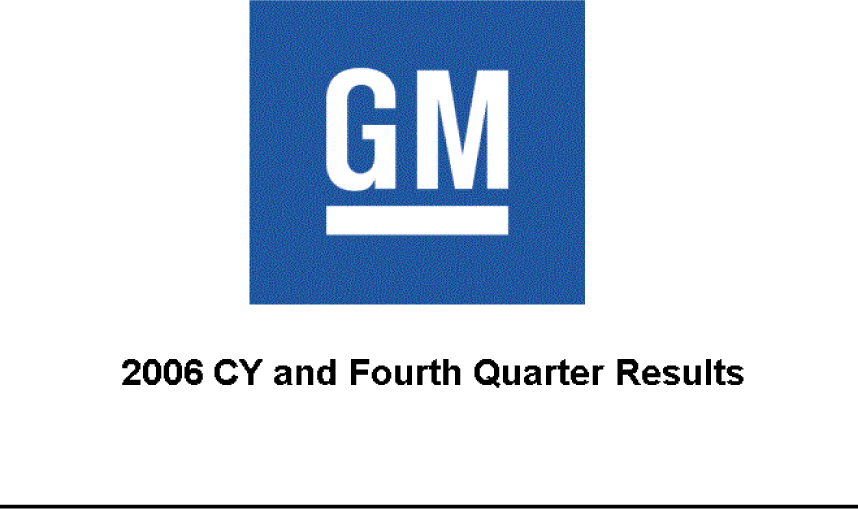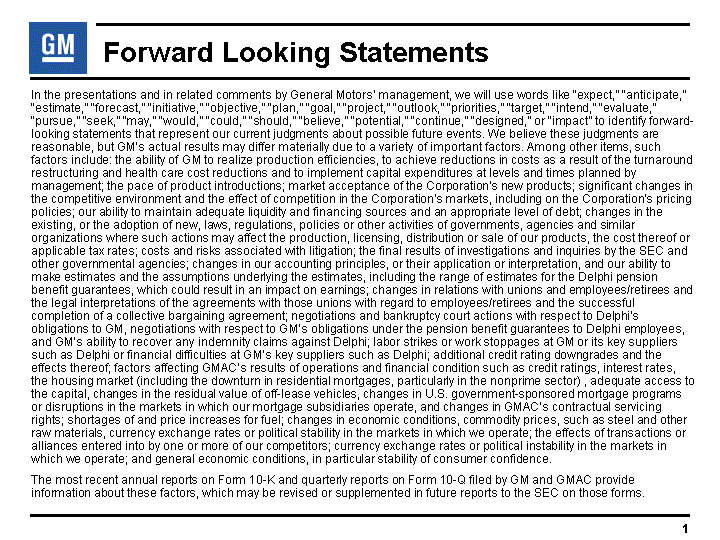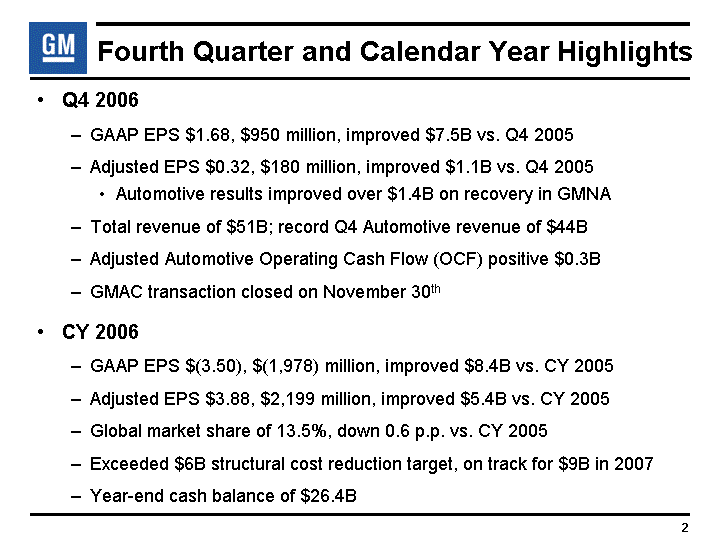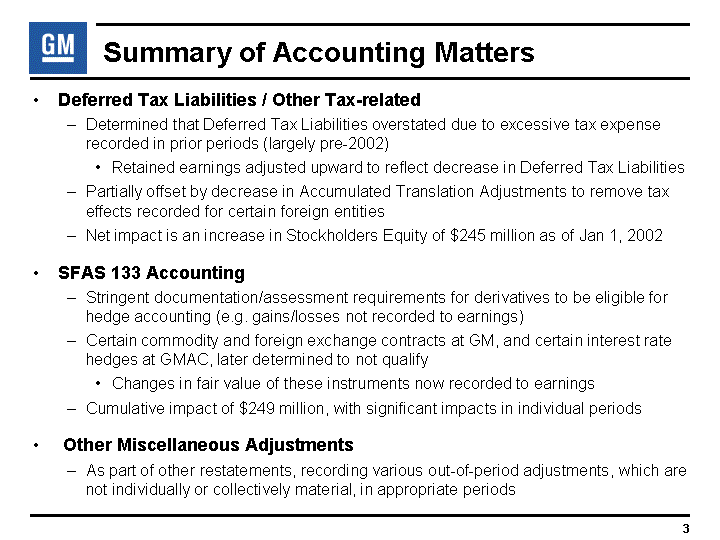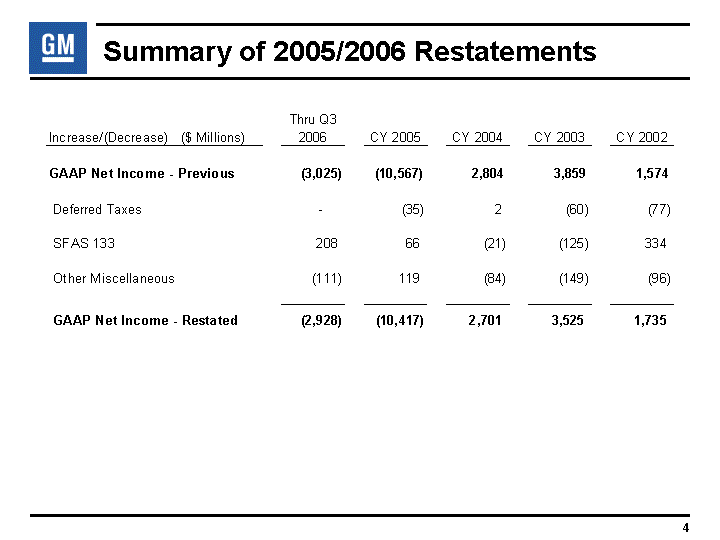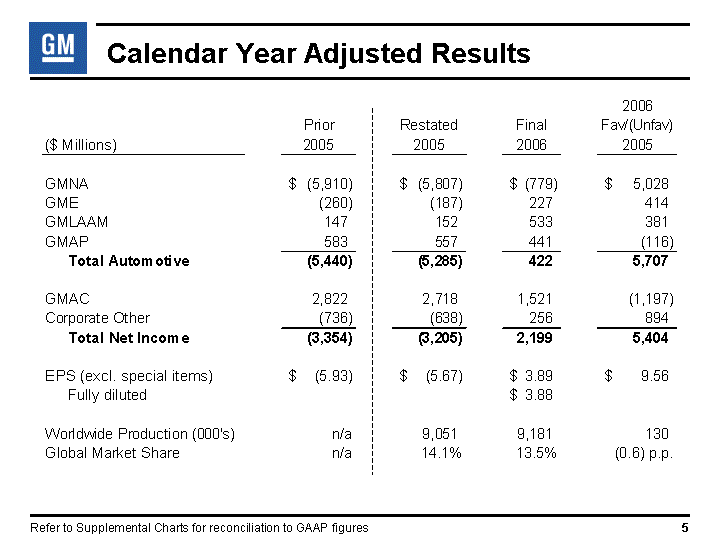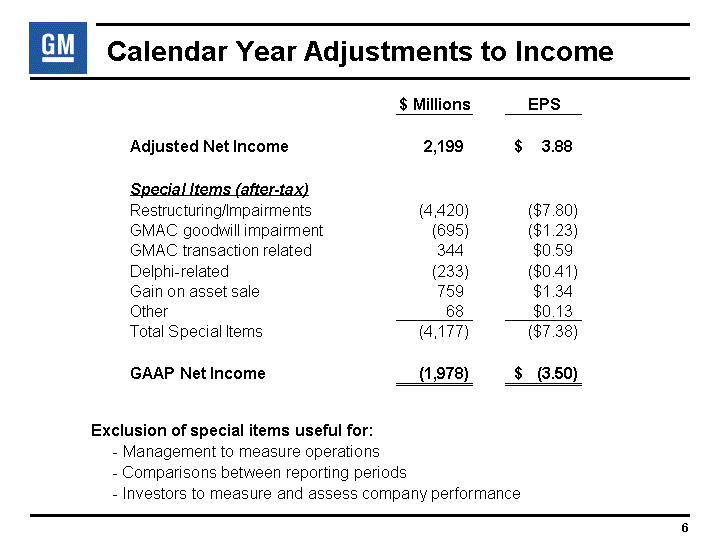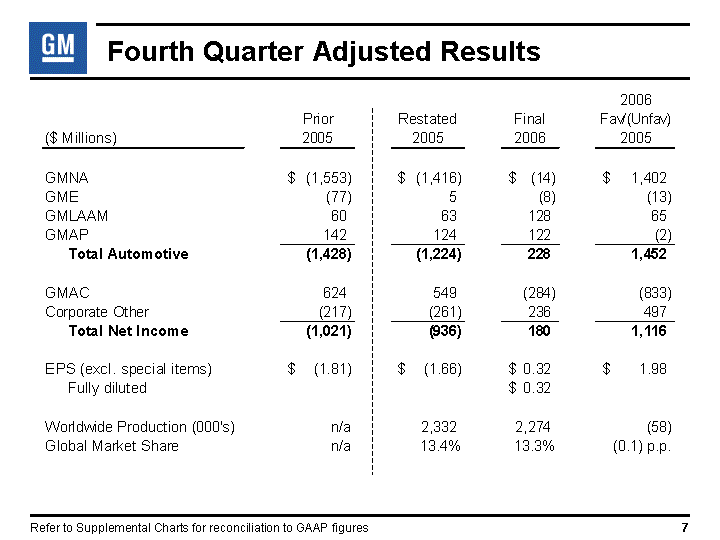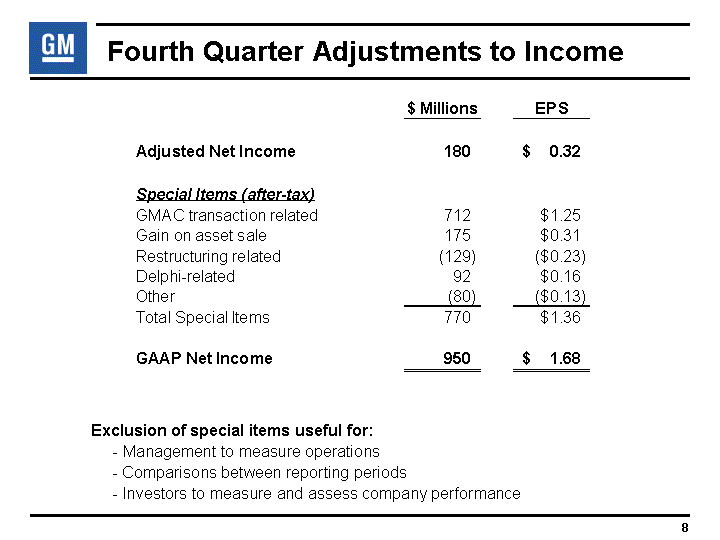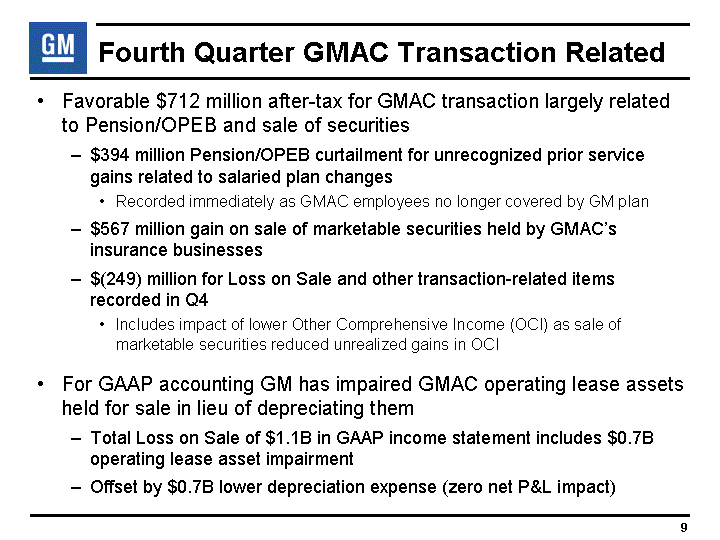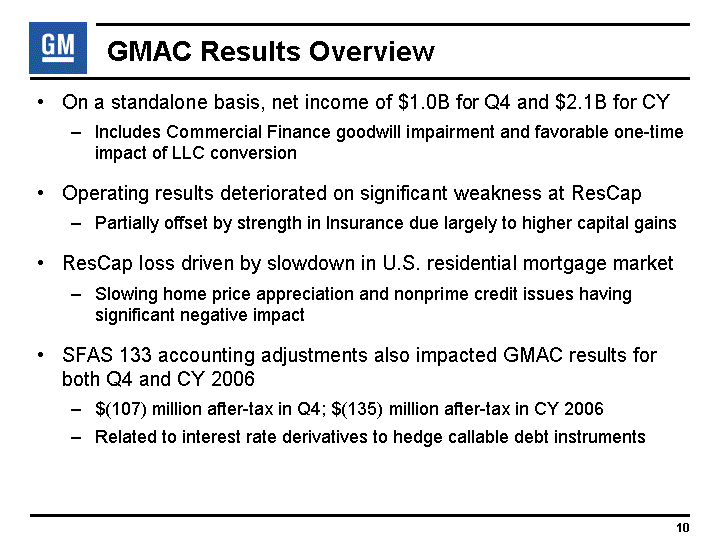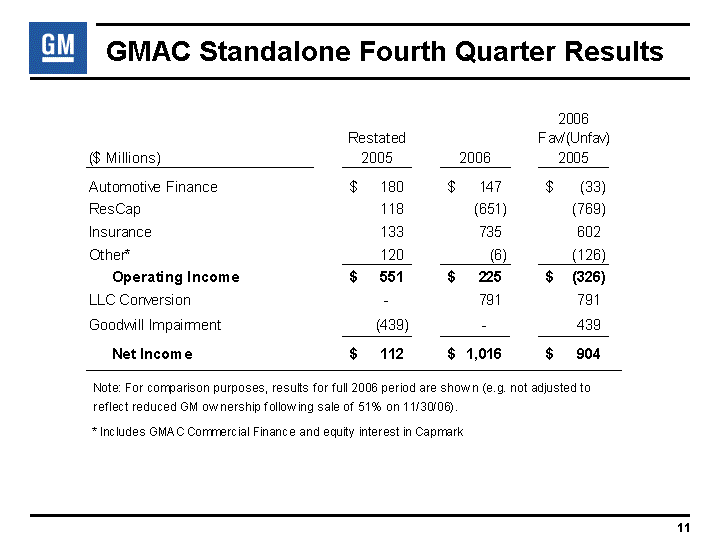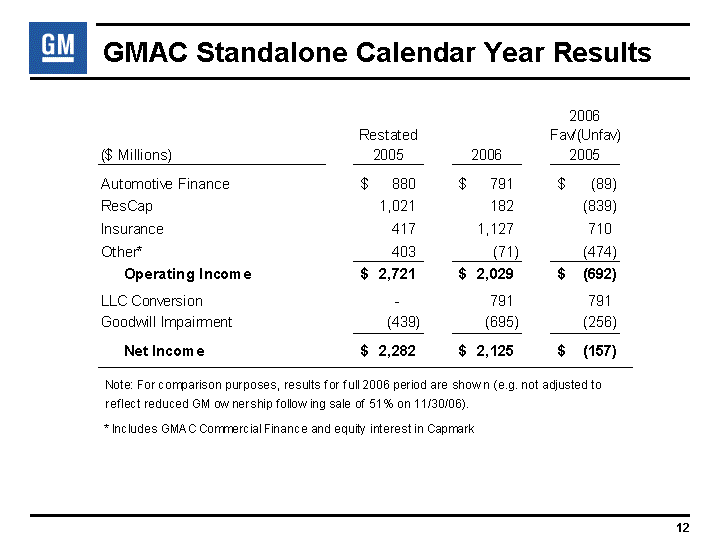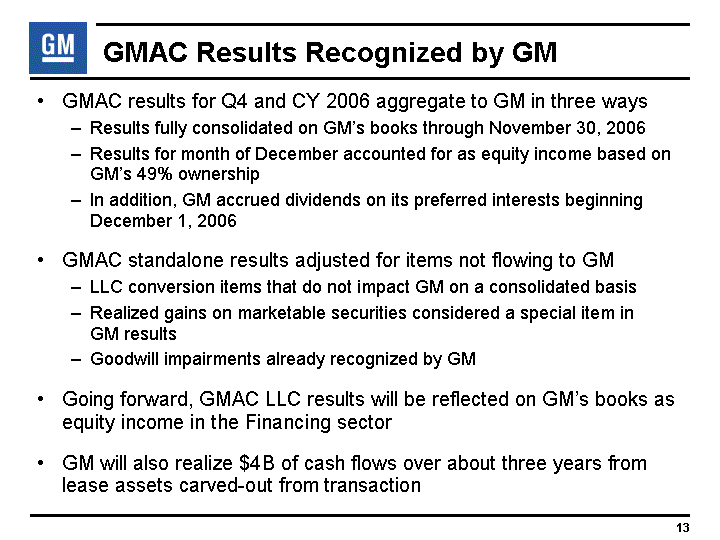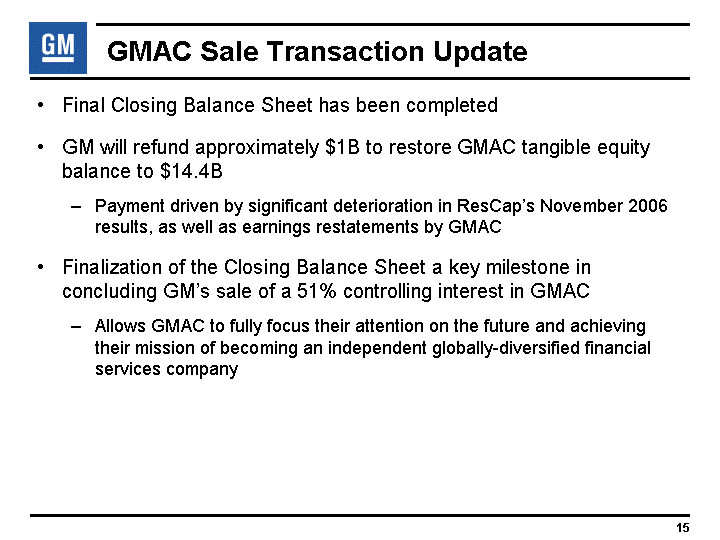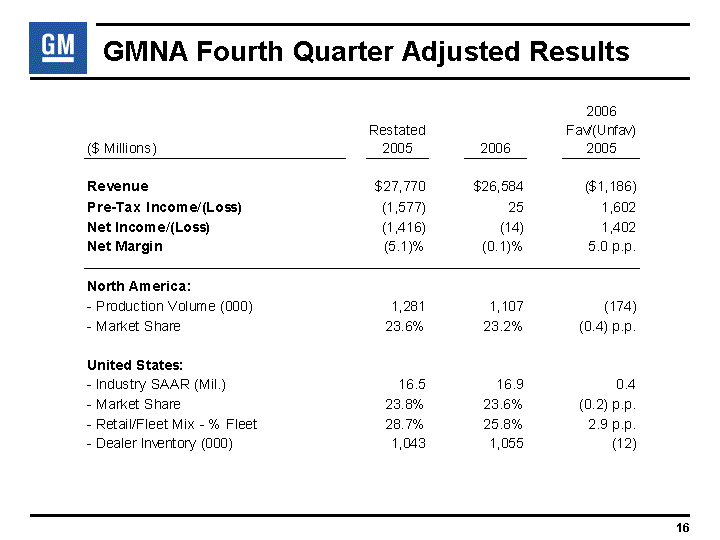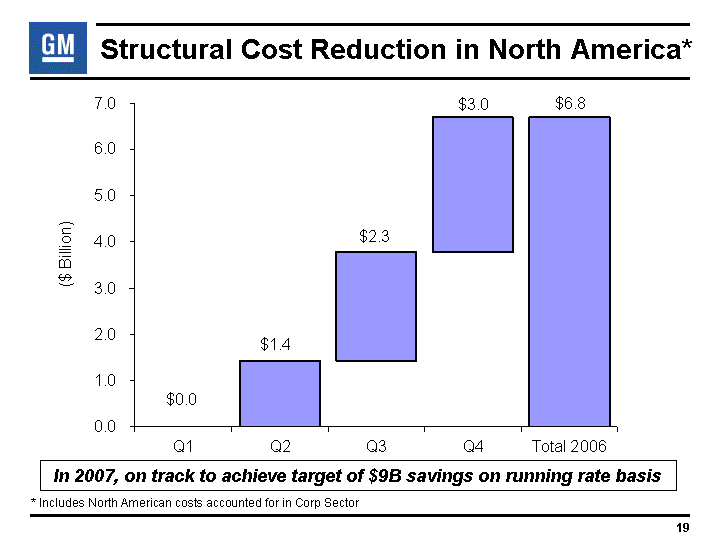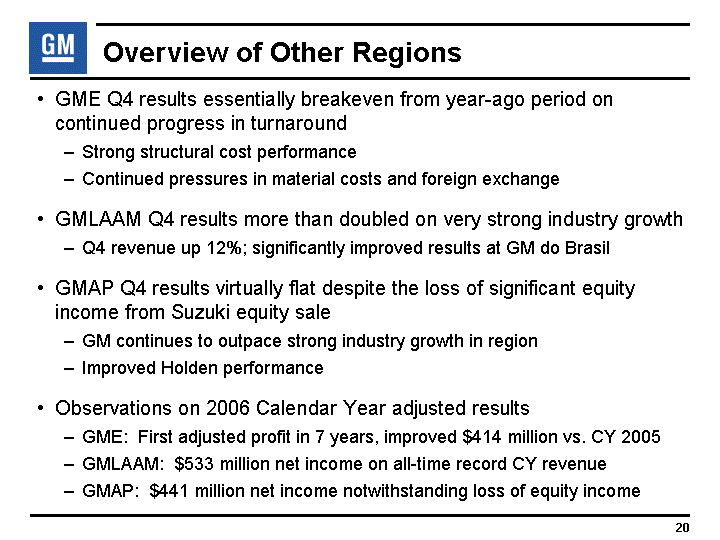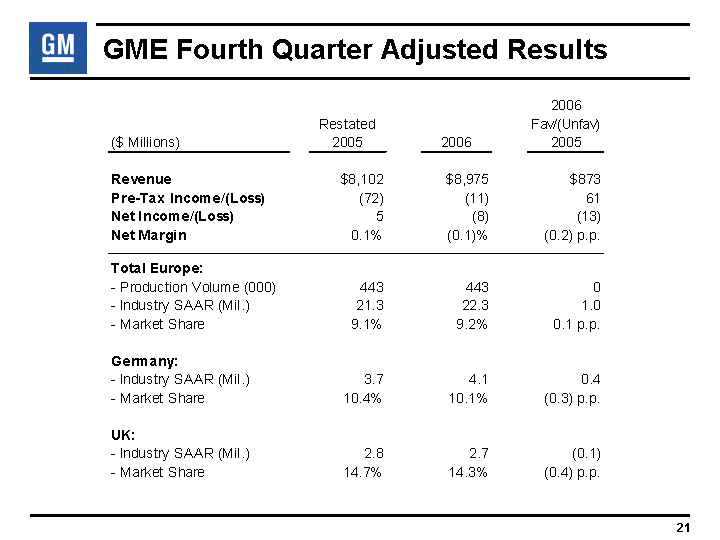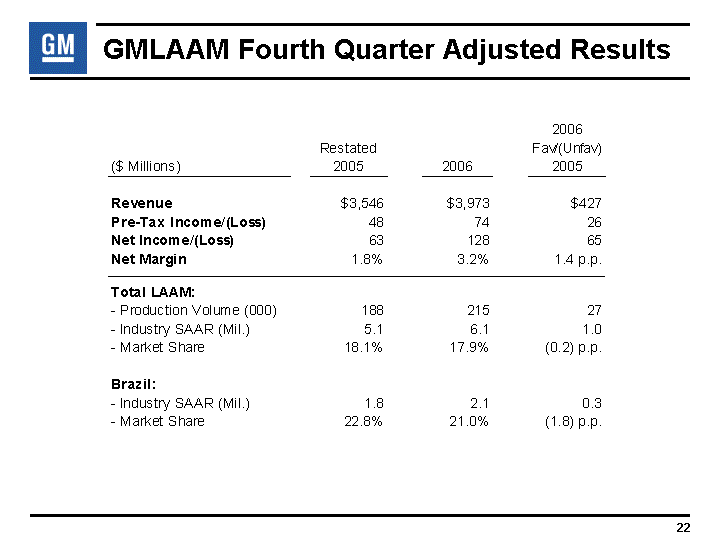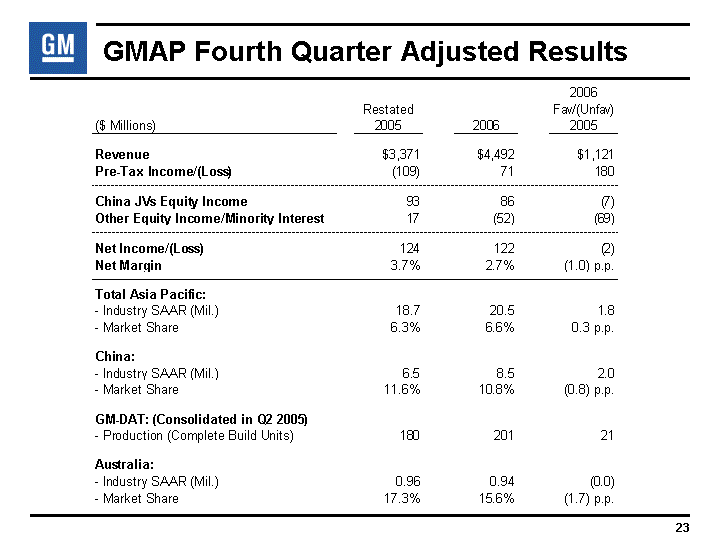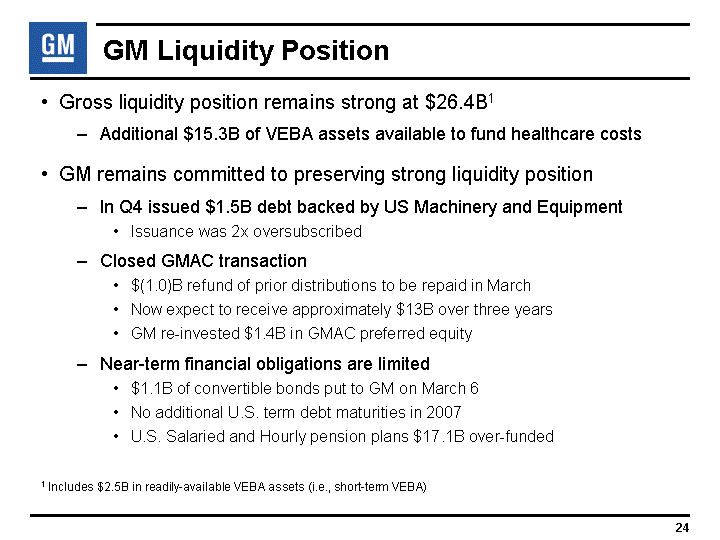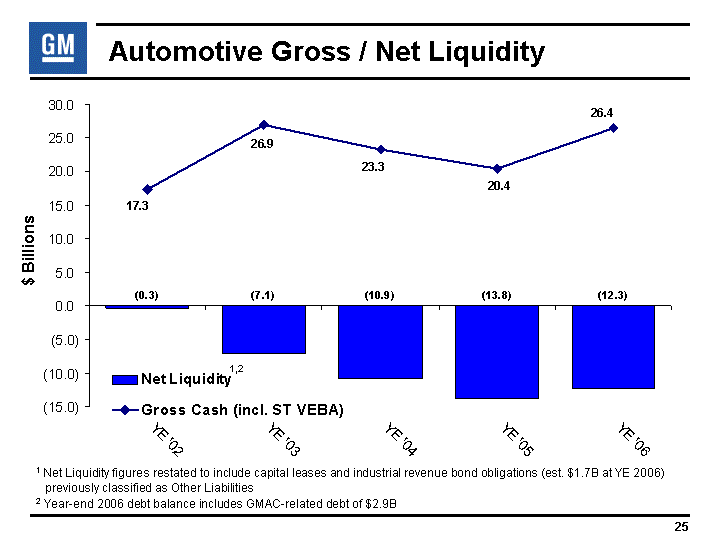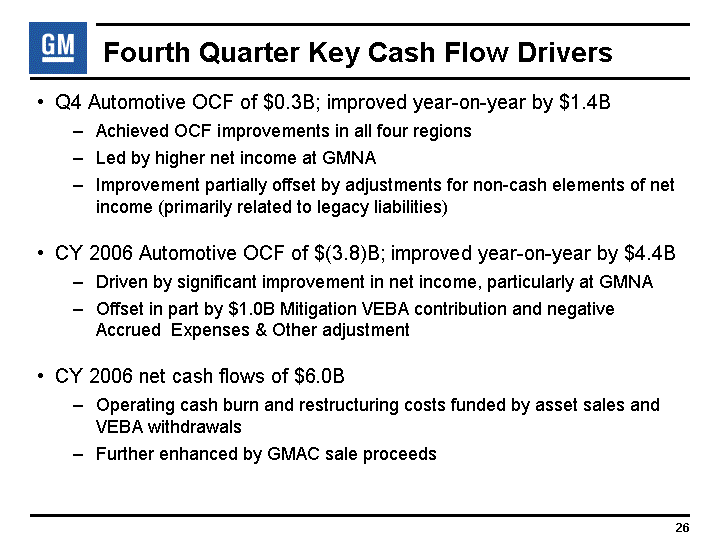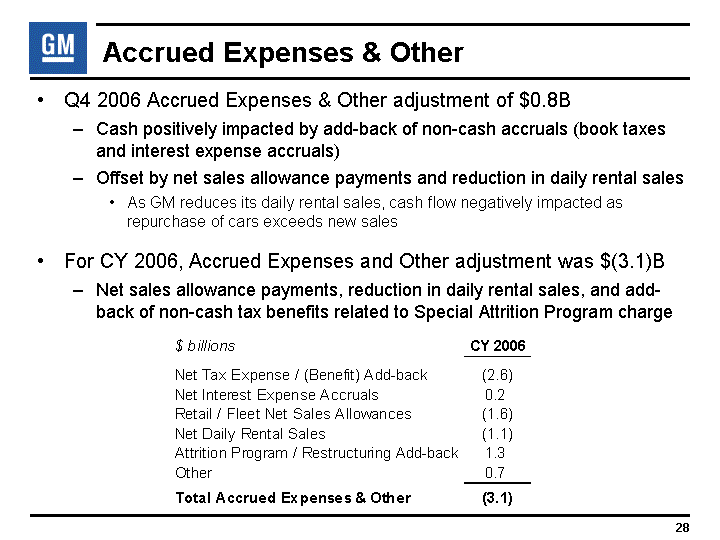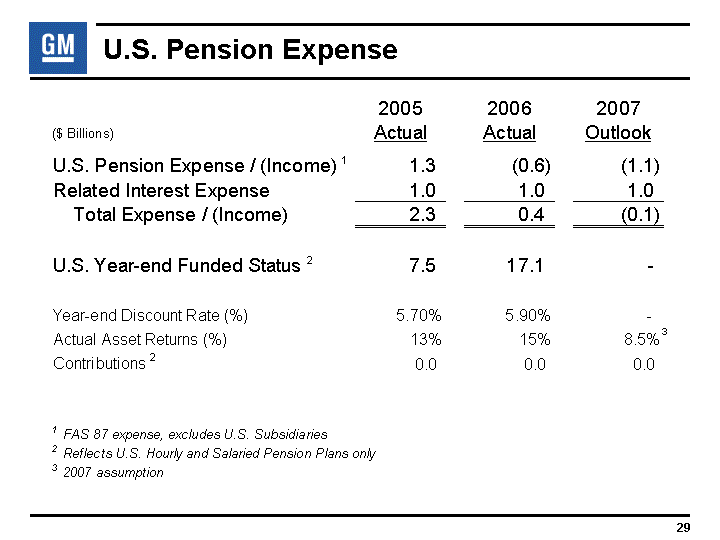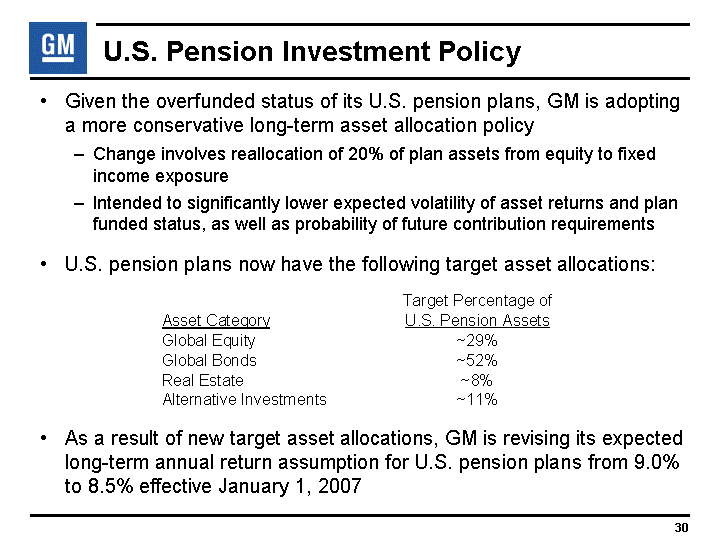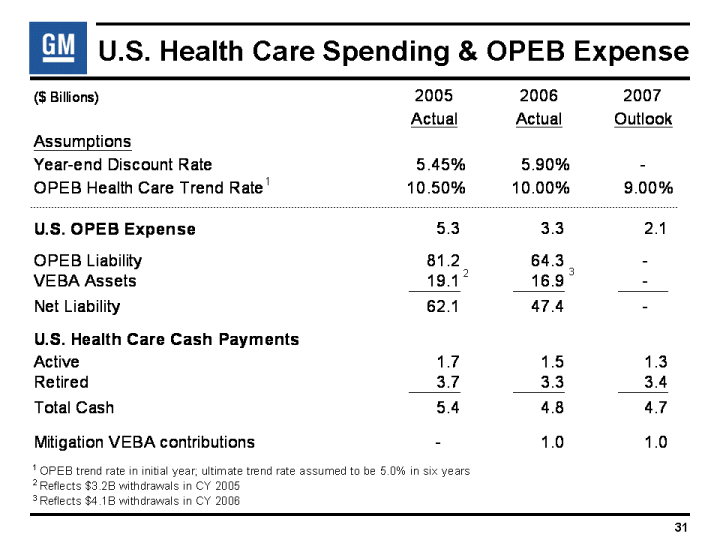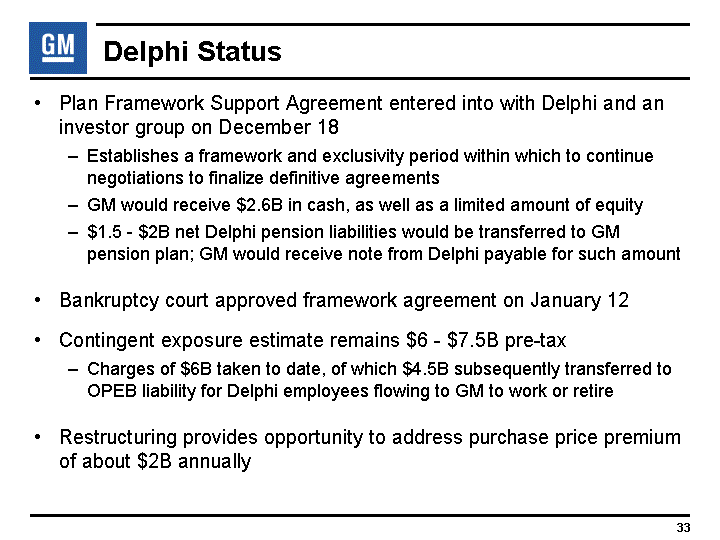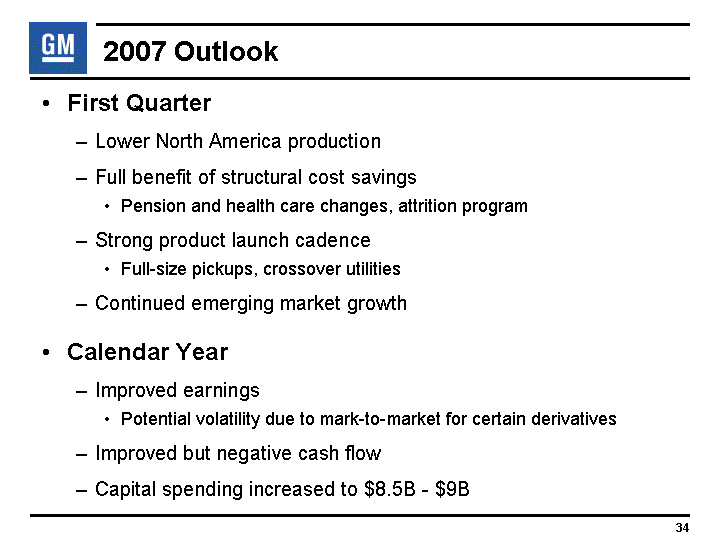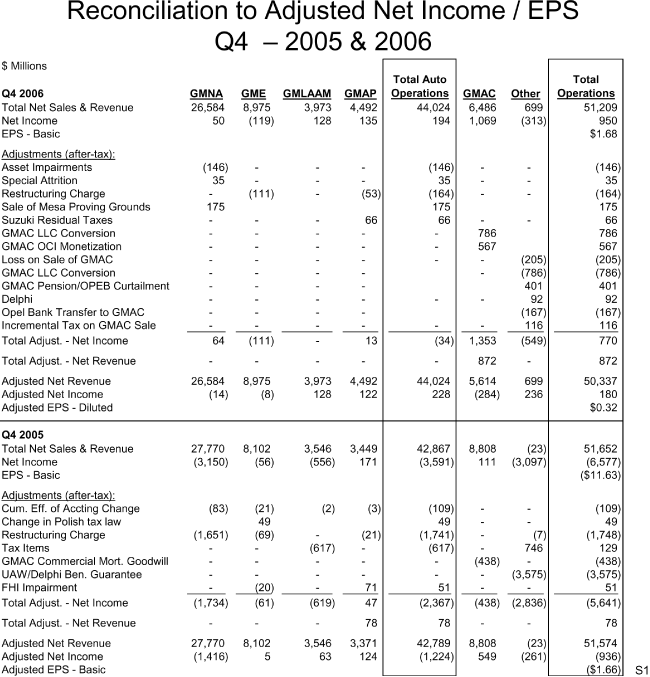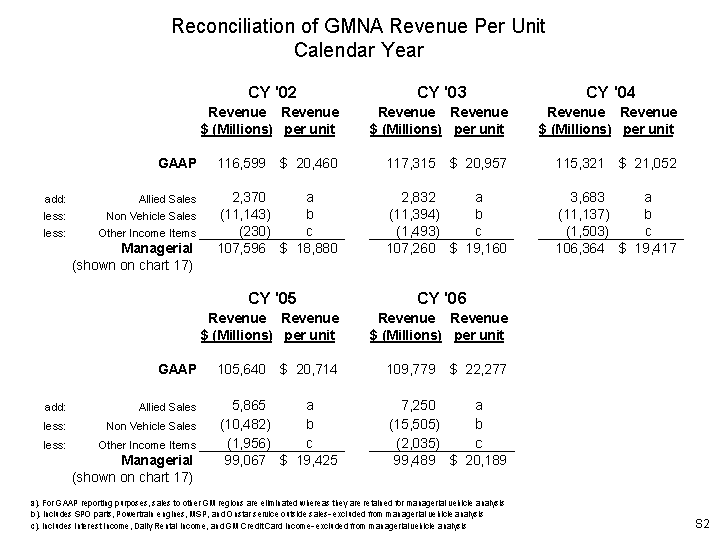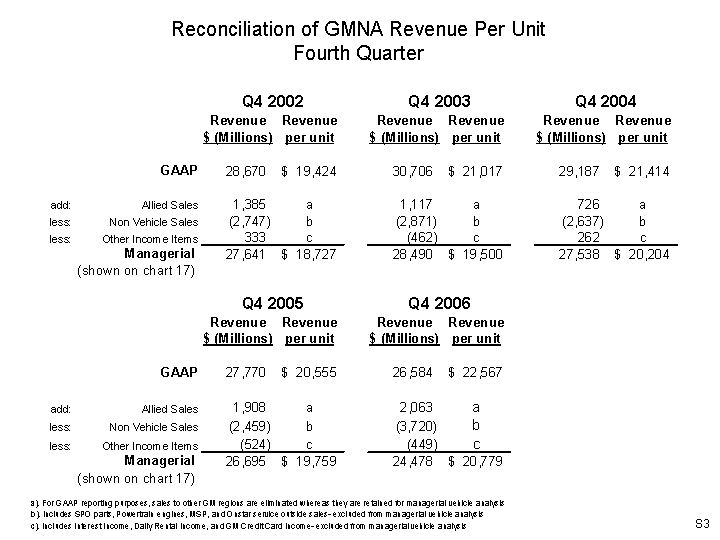| Forward Looking Statements 1 In the presentations and in related comments by General Motors' management, we will use words like "expect," "anticipate," "estimate," "forecast," "initiative," "objective," "plan," "goal," "project," "outlook," "priorities," "target," "intend," "evaluate," "pursue," "seek," "may," "would," "could," "should," "believe," "potential," "continue," "designed," or "impact" to identify forward- looking statements that represent our current judgments about possible future events. We believe these judgments are reasonable, but GM's actual results may differ materially due to a variety of important factors. Among other items, such factors include: the ability of GM to realize production efficiencies, to achieve reductions in costs as a result of the turnaround restructuring and health care cost reductions and to implement capital expenditures at levels and times planned by management; the pace of product introductions; market acceptance of the Corporation's new products; significant changes in the competitive environment and the effect of competition in the Corporation's markets, including on the Corporation's pricing policies; our ability to maintain adequate liquidity and financing sources and an appropriate level of debt; changes in the existing, or the adoption of new, laws, regulations, policies or other activities of governments, agencies and similar organizations where such actions may affect the production, licensing, distribution or sale of our products, the cost thereof or applicable tax rates; costs and risks associated with litigation; the final results of investigations and inquiries by the SEC and other governmental agencies; changes in our accounting principles, or their application or interpretation, and our ability to make estimates and the assumptions underlying the estimates, including the range of estimates for the Delphi pension benefit guarantees, which could result in an impact on earnings; changes in relations with unions and employees/retirees and the legal interpretations of the agreements with those unions with regard to employees/retirees and the successful completion of a collective bargaining agreement; negotiations and bankruptcy court actions with respect to Delphi's obligations to GM, negotiations with respect to GM's obligations under the pension benefit guarantees to Delphi employees, and GM's ability to recover any indemnity claims against Delphi; labor strikes or work stoppages at GM or its key suppliers such as Delphi or financial difficulties at GM's key suppliers such as Delphi; additional credit rating downgrades and the effects thereof; factors affecting GMAC's results of operations and financial condition such as credit ratings, interest rates, the housing market (including the downturn in residential mortgages, particularly in the nonprime sector) , adequate access to the capital, changes in the residual value of off-lease vehicles, changes in U.S. government-sponsored mortgage programs or disruptions in the markets in which our mortgage subsidiaries operate, and changes in GMAC's contractual servicing rights; shortages of and price increases for fuel; changes in economic conditions, commodity prices, such as steel and other raw materials, currency exchange rates or political stability in the markets in which we operate; the effects of transactions or alliances entered into by one or more of our competitors; currency exchange rates or political instability in the markets in which we operate; and general economic conditions, in particular stability of consumer confidence. The most recent annual reports on Form 10-K and quarterly reports on Form 10-Q filed by GM and GMAC provide information about these factors, which may be revised or supplemented in future reports to the SEC on those forms. |
